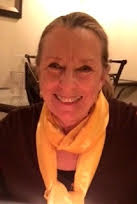 Susan P. Blevins was born in England, lived 26 years in Italy, and has now resided in the USA for the past 24 years, first in Taos, NM, and currently in Houston, TX. While living in Rome she had a weekly column in an international, English-language newspaper, writing about food and restaurant reviews primarily, though not exclusively. Since living in the USA she has written pieces on gardens and gardening for N. American and European publications, and she is now writing stories of her life and travels and gaining traction in various literary publications. She loves reading, writing, cats, classical music, and stimulating conversation. JOY OR HAPPINESS? Of late, I’ve been thinking about the difference between happiness and joy. I believe they are very different. Happiness may be likened to surface waters gurgling merrily along as streams and rivers, fed by precipitation in the guise of life’s emotional ups and downs. Using the same analogy, joy is best described as the aquifers that run deep underground and which furnish a constant, reliable supply of water. The Constitution states we have a right to the “pursuit of happiness”, which is pretty easy to understand, since happy is a word used to describe our mood when we are involved in various enjoyable activities. The “pursuit of joy” would have been a much more demanding proposition. Happiness is a delightful state of mind, and can be brought on by a delicious meal, a new outfit, a stimulating conversation, a good book, good sex, a hearty laugh, and many other things. When we are happy we smile contentedly until the source of our happiness disappears. We lose a loved one, or we lose our job, therefore our money, therefore the ability to be able to buy those things that we imagine make us happy. When such a shadow is cast upon our lives, happiness is the first thing to vanish. It is a surface condition, and when the surface waters start to roil with turbulence, then happiness is a thing of the past, and worry, fear, depression and a sense of lack set in. Or you can choose to sink beneath the surface waters of happiness to find the deep wellspring of joy, which is much more likely to withstand the vicissitudes of life, the upheavals that happen to all of us as part of the human condition. So how exactly do we tap into a steady source of joy? In my own life, I feel really happy when I exercise, dance and sing around my house, drink wine, sit with close friends, cuddle my cat, cook a new recipe that comes out well, complete the tasks on my never-ending list of things to do, and many other small things that give temporary satisfaction. I find my joy, however, in the few things that feed my soul. Nature and beautiful music probably tie for first place. Caring for plants, sowing seeds and then harvesting the outcome, are a never-ending source of amazement, joy and gratitude to me. Surely gratitude is an important component of joy? And music, words cannot express the uplifting, spiritual experience that washes over me like a benediction when I hear a beautiful composition, executed by musicians in harmony with the composer. The composition may be from the 1800’s, but the interpretation by authentic, heart-connected musicians, continually renews the initial inspiration that came to the composer as a prompting in his soul. From composer’s heart to performer’s heart to audience’s heart, runs an unbroken chain of divinity. And joy cannot be grasped and held on to jealously, to feed on later. Joy is a perfect expression of being in the ‘now’. I resonate deeply with William Blake’s beautiful and psychologically sound lines, “He who binds to himself a joy, Does the wingèd life destroy; But he who kisses the joy as it flies Lives in eternity’s sun rise.” What a perfect description of rejoicing in the beauty of the moment! And it’s always applicable in our own lives, whichever age we live in. Perhaps in our own age we try very hard to capture and contain those ineffable moments, like taking photographs of beautiful landscapes: we focus on taking the photograph, instead of committing the landscape and the feelings of the moment to our eternal memory. Before the advent of cameras, people used to sketch the scenes they loved, and by that act became a part of the scene. The facile click of the camera now makes it a forgettable instant. Traveling today is more like, “Oh, here’s the Acropolis, so it must be Thursday.” Joy cannot be captured and held down by force. It is not an intellectual exercise, but rather a spiritual experience, which far transcends intellect. So other than the specifics of, in my case, nature and music, which serve as portals, joy may be defined as a total commitment to living in the present moment, participating in the eternal ‘now’. Just the grasping of the concept that this moment is only now, and will never be repeated, bestows a sanctity upon it. I have had this awareness since I was about nine years of age. “I’ll never live this precise moment ever again.” Why did it matter to me? What told my nine-year old mind to hold such considerations? Perhaps it was grace. I don’t know. I do know that appreciation for such moments of grace is a blessing, whatever it is. To share such a moment with a like-minded person multiplies the blessing, like being together in a river flowing by endlessly, and for just a moment being one with the flow of the river and with each other. This awareness of time since such a young age was brought on one day by the inconsequential experience of jumping on to the platform of a bus, and thinking to myself, “I’ll never be in this moment again, jumping onto this bus in this place at this time.” Ever since then I have been acutely aware of the passage of time and how ephemeral life is. So the outcome of these reflections would be the Latin aphorism from Horace, carpe diem, carpe diem, seize the day, seize the day. Joy means feeling fully alive, and that always contains an element of risk, or danger. I have read many times that moments of extreme danger and risk bestow an intense feeling of aliveness. So surely the inspiration is to take a risk, jump off the edge into the unknown, experience uncertainty, and in that moment of falling without knowing if or where we will land, will be our moment of greatest aliveness, and of joy. I think it’s possible to pass over the threshold of happiness into joy if we allow ourselves to go deep within the moment. Basking in a glorious sunset in beautiful countryside, or over the ocean, can easily pass from aesthetic appreciation to awe of the presence of God. I think what I’m trying to get at, is that joy comes ultimately from a spiritual source. There is always an element of ecstasy in joy, of exaltation. Joy comes from a place which is more universal, and gives us the feeling of scratching on heaven’s door for entrance. Joy comes when we realize the oneness of all things, whether it be oneness with the glorious sunset, or sharing a deep human connection with another, which goes beyond two individuals to the source of all humanity, where there is total acceptance, total trust, and a willingness to be vulnerable. Those are the sacred moments when we are aware, perhaps unconsciously, that there are no divisions at the universal level, only shared life with all peoples, whatever the color of their skin, or their ethnicity or creed, something we can experience when we love greatly. I had the personal experience of this oneness some years ago during a ride on the underground train in Rome. I looked around at the other people sitting and standing, immersed in their own thoughts and worries, and for an instant I felt that there was no separation, no dividing of the one human spirit into separate bodies. I lost the confines of my physical body and we all melted together in that moment. It was like standing on top of a mountain peak seeing the whole of life spread out before me. From such a place our human situations are put in perspective. What seemed of such paramount importance to me a moment ago dwindles when viewed from the height of detachment and a greater vision. From on high we can see the pattern of the whole, and the intrinsic unity of all things in the amazing web of life. The wellspring of joy is also the source of strength and comfort which we need in moments of great loss, like the death of a spouse, or worse still, the death of a child. Only by plumbing the deepest depths can we hope to survive those moment and learn to accept that death is part of life, inexorably so for all of us in the physical form. But what if life continues in another dimension after our body ceases to function? What if death is not an ending, but a beginning? I believe we have the inner power to transform even fear into joy. All it takes is the will to live life from a place of love. So for me, joy is like a taste of heaven right here on earth, a window opened briefly on to a far greater existence than we are used to living, a door which opens to show us the wisdom of love, gratitude and service.
0 Comments
I came to the US when I was in the third grade from Japan and did not speak or understand English. Also, back then, there was no such thing as ESL, and it was really bad to be an Asian sitting at the "Dummy Table." I overcame the obstacle(s) and eventually earned an MFA from Wichita State University (long long time ago). I'm a retired US federal law enforcement officer and now have the time to write again. The Educational Bow My first class at Arlington Elementary was the sixth grade. My family had arrived in the United States from Japan only three months earlier. I remember sitting at a small table in the corner by the back wall. It was only two months earlier that I used to sit near the front, next to the teacher’s desk. My old table was often referred to as “The Oriental Table” since only the Orientals and the smart Caucasians sat there. No one had to tell me my new table was in the dummy corner; it was the part of every classroom where the teacher placed the hopeless. Dan Zukle, Joe Fisk, and Bobby Tymick sat at my table. We were all good friends. They understood my situation so they didn’t speak English to me really fast or use complicated words. It was eight weeks into the semester that day. I remember the event too well. I wanted to watch the birds play on the rubber tree outside, but the location of my new table made that impossible. If birds could communicate, so could I; maybe, I thought, I could learn something by observing them. Forty-five minutes remained before we would be dismissed, but the abnormal, absolute silence, and the different behavior patterns of others led me to the conclusion that something was wrong. On a regular day, people would be throwing graham crackers at one another. Only my friends and I tried to act as we usually did: Joe and Dan played tic tac toe on top of the desk, Bob picked his nose, and I pretended to yawn. Then it happened, five minutes before class ended. “Put everything away! Come up here when your name is called,” our teacher said. Immediately, I knew the situation wasn’t good. Mr. Magoo was what I used to call our teacher. Like the cartoon character, he was bald and had slanted squinty eyes. Back then, I often wondered how he could see out of them and thought he had Oriental blood. He wasn’t incompetent or unfair as a teacher, but Magoo could only see what the exterior showed him. I didn’t meet his expectations when compared to other Orientals. “Mike Acott, Mark Bollinger, Joe Fisk . . .” Magoo called names in a rapid succession. “Jack Mayesh, Takeshi Tsukemoto . . .” The last name was mine. I walked up, stood in line, and talked to Joe in front of me. Others, who didn’t sit at our table, were quiet standing in line. But my friends and I acted normal, since we were used to being called to Magoo’s desk. Naturally I was nervous since this type of event was a first, but I would have been really surprised if Magoo had not called me. After a period of time, a person knows what or what not to expect without being told. All the Orientals at the smart table appeared to be doing their homework, but I knew they were really writing to one another and making a list of people being called to show to their parents. I knew what they were doing since I used to be one of them. “Bobby Tymick, Diane Sakamoto . . . “ Students started to whisper to one another. I even stopped talking; I was shocked! Diane sat at the Oriental Table. Like the rest of the girls in the Oriental community, she wore a knee-length skirt, a freshly pressed blouse, ankle-length laced socks, and polished black shoes. She had her ponytail tied back with a pink bow. Diane cried as she walked toward the line with her head bowed. Magoo gave me a piece of paper. “I want it back tomorrow, and I don’t want to hear that you say again that you forgot it.” The cartoon Magoo had a bad memory, and I thought our Magoo was the same. I sat down, folded the paper, and stuffed it in my shirt pocket. People at other tables read theirs. I would have read mine too, but I couldn’t read English. Diane cried out loud, her arms covered her head on top of the desk. These papers must be really humiliating, I thought. “Edgar Watson, Norma Vega, Daniel Zukle.” The dismissal bell rang. Bob took books out of his desk. “Bobby, “ I asked, “why all book?” I never took books home since I couldn’t read them. Although I once did take books home with me, I soon realized that it didn’t make any sense. “Mom and dad will think I study. It always works.” “What it?” I pointed to the piece of paper in my shirt pocket. “ ‘D’ notices! Don’t you know that?” I didn’t, but I knew ‘D’ was a bad grade. This was worse that expected, I thought. It wasn’t just another bad grade. A fist-sized black and blue bruise was still on my chest from last week. The bump on my head was for a ‘D’ on a spelling test. I knew the paper would give me a stomachache. Everyone who received a notice left the class with lots of books, except me. In fact, even the Caucasians looked like the Orientals. Diane cried at Magoo’s desk. The rest of the Orientals didn’t wait for her as they usually did. Maybe, I thought, I wouldn’t be the only Oriental at my desk. Dan and Bobby walked home with me. “What does it say you’re flunking?” asked Dan. I pulled out the folded paper and gave it to him. He placed his three books under his arm. “Gosh! You’re flunking everything: Science, History, Spelling, Health, Reading, Social Sciences. Everything but Math.” Magoo didn’t know that my father did my math assignments on an adding machine. “Dan, mom and father mad this night?” “Naw, they tell me try harder. I’m only flunking two subjects. Much better than before.” It wasn’t the proper moment to criticize him for taking home books he had no intention of reading, for he was now one of my new Caucasian and only friends. “Gosh,” Dan said, “I thought all you Japs were smart.” So had I, until six weeks ago. Being different and an outcast meant no longer having to conform to a set of rules. Diane walked past us crying, her head lowered, talking to herself as though she was counting the cracks in the sidewalk. She carried a big bag full of books, more than usual; she knew what was expected of her in this situation. I walked behind her with my head up. “What you going to do?” Dan asked. “Not know. Good-bye.” I turned right, onto the street I lived on. Vic Kuramato, known as the “The Oriental Brian,” walked down the street two houses ahead of me. He carried lots of books home every day. Vic’s mother had told my mother that his father needed all of those books to do Vic’s homework. I crossed the street and passed him. “Vic, hello.” He didn’t turn his head. We had been best friends, but he hadn’t talked to me since Magoo moved me. Our house looked real Japanesey. Bonsai trees were planted in the front yard. They looked like little green balloons attached together with thick brown rope. Oriental lanterns hung around the exterior of the house, just like the ones on our old house in Japan. “I’m home,” I said in Japanese. I forgot to take off my shoes and walked inside. “Shoes! Shoes!” my mother yelled from the kitchen. To take off dirty shoes and put on dirty slippers didn’t make any sense to me, since dirt from either the shoes or the slippers would have dirtied the shag carpeting; slippers were used to walk on wooden floors in Japan. I went back to the doorway and took off my shoes. Again, I said, “I’m home,” in Japanese. My mother stopped arranging the pots and pans and looked over the kitchen counter at my feet. I went to my room and looked at my notice. I thought about tearing it up, but Magoo would then call my parents like the last time. I tried to read a Japanese anthology Yukio Mishima’s works that I had hidden under my bed but wondering what might happen to me that night didn’t allow me to concentrate. The book was a present from one of my teachers in Japan. My parents didn’t like me reading anything written by Mishima; they said that people in Japan thought he was crazy--something about how the Japanese changed after World War II and then committing suicide. Don Pedersen tapped on the window. He lived across the street. “Let’s play basketball,” he said. “Ya,” I replied. I went to the kitchen and asked my mother. “Mom, me going play basketball with Don.” “No!” She stood behind the kitchen counter, washing dishes. “You should play with Vic Kuramoto. Your father said you should play with your own kind. If you play with Vic, maybe you will get better grades!” she said in Japanese. She poured water into the rice cooker. “You play Vic, not Don.” I went back to my room, hid the anthology under my pillow, turned up the radio volume, and removed the wire screen of the window with a screwdriver I had taped under the desk. I removed the little metal hook on the bottom of the screen, pushed back the screen, jumped out, and put back the screen. At both sides of the entrance of Don’s driveway were three-foot high brick planters, in each were green lanterns held up by metal poles. We played basketball for an hour, and I, as usual, won. He was a better player than I, but I always outwitted him. I studied his moves and memorized what he would do in every situation. Every time he drove for the hoop, he would either step left or stop. I also knew his favorite shooting spots. He rarely beat me after the first time we played. We saw Vic Kuramoto and Gene Yasuda playing basketball in Vic’s driveway five houses down the block. Don and I went there. Bonsai trees gave a background to a miniature model of Mt. Fuji in the front yard. Lanterns also hung on the exterior of the house; Vic’s mother had hung them after my mother put ours up. “Hey, Vic, how about a game? You and Gene against me and Tak,” said Don. “No,” said Vic. I let Don do the talking. I sat down on Mt. Fuji’s crater. Gene dribbled the ball on the other side of the driveway. He never did say much. “Come on,” said Don. “Can’t,” said Vic. “I’m not allowed to play with Tak.” I nodded, yes. I always gave the instructions. “You’re chicken, aren’t you! You’re afraid that we’re going to beat you! Ain’t that right, chicken?” Don bent his elbows, flapped his arms, and cackled, “Chicken! Chicken!” I also bent my elbows, flapped my arms, and yelled, “Kokekkoko! Kokekkoko!” That was the Japanese version of what a chicken sounded like. Don and I circled them, flapping our arms. Don cackled, and I kokekkokoed. “No! We ain’t scared of you!” yelled Vic. “Then prove it!” said Don. Don and I smiled at each other. We gave them first outs. During the game, I studied their style of play. Gene always drove right for a lay-up. Vic dribbled the ball low, then broke left toward the hoop. Don and I let them win. “Hey guys,” said Don. “How a rematch for fifty cents.” Don showed them the money. “Fine,” said Vic. “Yea! We’ll kick your asses now,” said Gene. “We’ll even let you have first outs,” said Vic. “Yea! Put up or shut up!” yelled Gene. Gene stood in front of me and tried to dribble the ball between his legs. Don and I huddled under the basket, and I drew diagrams on my hand to show him what I had observed about the style of play. All I did during the second game was to block their approaches to the basket. Vic would turn left, so I waited and intercepted the ball when he did. I stood in Gene’s lay-up path, and he would miss. They hardly scored. I did miss a few easy shots that I usually didn’t miss. The game was over in five minutes. Gene stood on the other side of the driveway and didn’t say anything, and Vic went inside to ask his mother for money. Both looked downwards. Vic’s mother came outside and yelled, “Go home!” She reminded me of the Wicked Witch of the West with an apron. Don and I bowed. “Thunk you,” we said; Don used his best Japanese accent. “Yu need hari hari now.” Vic and Gene ran after us and threw rocks. My father’s red Toyota was parked in the driveway, so I went with Don to his house. We walked past the green lanterns and went inside. There was a fire in the fireplace and the entire house was warm. I sat in Mr. Pedersen’s easy chair, and its awesome size surrounded me. The aroma of roast filled the air. An antique spinning wheel was in the corner of the living room. Mrs. Pedersen sat down next to Don. “Don, Mrs. Kuramoto called and said you and Tak cheated Vic and Gene out of five dollars. Is that true?” “No! They bet us and lost, and it was fifty cents.” “Okay. Thank you very much. But you know about how I feel about betting.” Don whispered in her ear. She walked towards me and sat on the chair’s armrest. “Tak, did you receive a ‘D’ notice?” I looked up. They understood me. “Why don’t you stay for dinner and as long as you like,” said Mrs. Pedersen. “Thunk you,” I said. I wondered if she would sign my notice, but Magoo already knew my father’s signature. I sat next to Mr. Pedersen at the dinner table. He removed the roast from the oven, cut the string, and carved a big portion for all. He wore a white shirt and blue tie. I really like mashed potatoes. My parents later called, and I had to go home. Mr. and Mrs. Pedersen escorted me to the door. She knelt down and looked me straight in the eyes. “Remember, you’re welcome here anytime.” She straightened my collar, but she didn’t let go until she looked up at her husband, who shook his head in a horizontal motion. I walked into my house. My father came towards me with an ‘I’ll fix you’ look in his eyes. I had never seen him like that before. He wore a white tank top T-shirt and briefs. His potbelly hung over the elastic. “What matter with you!” He always yelled at me in English. He wrapped his fist with my hair, dragged me to the kitchen, and started hammering his knuckles into the bump on my head. I felt blood ooze out of the bump. My mother put something in the oven. “Mom not face Mrs. Kuramoto because you get bad paper!” he yelled. “Mrs. Kuramoto called and asked Takeshi get one?” He rolled the ‘D’ notice into a ball and shoved it in my mouth. “Mom so embarrassed, say no. Japanese smart, get all ‘A.’ What matter with you! Mom not look at Mr. Kuramoto because you get bad paper. You cheat at basketball too!” He dragged me by the hair into the hallway, drove my head into my bedroom door, and then he kicked me in the stomach. “You not embarrass? Huh?” He grabbed my hair again and banged my head into the door. “Huh” You not embarrass? Answer? Yes! No!” My forehead was driven into the door every time I didn’t reply. “Huh?” You not embarrass?” He hit me in the face with his right fist, and I fell on the opposite side of the room. I closed the door and was finally able to crawl into bed; the blood from the bump kept sticking my hair to the pillow, and I couldn’t move my head. My father came back in. “What my employees say? You play with Vic, you get smart. You no fucking good! What people say! Me have to hide face!” He grabbed my head and forced me to kneel in front of him. Hairs stuck out through his T-shirt at the peak of his belly; he hadn’t taken a shower. “All Japanese smart. You fucking stupid. What people say! Me have to hide face from employees!” I felt him hitting my head with the heel of a hard shoe. “Not embarrass!” He rhythmically kept pounding my head with the shoe. “No? Yes? Huh?” I didn’t answer. He held my head to the ground, the right side of my face against the carpet. “No? Yes? Huh?” “Ya,” I finally had to say. “Me embarrassed.” He lifted my head with my hair. “You embarrassed?” He grabbed my hair and manipulated my head to nod up and down. “Play with Vic?” I didn’t answer until I felt the heel of the shoe pounding the left side of my face. “Ya, me play Vic!” I screamed. He kicked me in the face and left. I looked out the window. I removed Mishima’s anthology from under my pillow, along with the flashlight that I used to read with after bedtime, put the anthology in the closet, looked downwards, and climbed into bed. Suddenly, the pain stopped, and I fell asleep. A PhD-level scientist, Sankar Chatterjee possesses the passion for traveling worldwide to immerse himself in new cultures and customs to discover the forgotten history of the society while attempting to find the common thread that connects the humanity as a whole for its continuity. His most recent essays appeared in The Missing Slate and Travelmag - The Independent Spirit. Photos courtesy: Shelley Chatterjee Enchanting Lake Atitlán: Nature’s Beauty in Guatemalan Highlands While visiting Antigua in Guatemala during a recent trip, my wife and I came to learn about the beauty of the Lake Atitlán surrounded by the mountains and dormant volcanoes. The basin of the lake was created more than 80,000 years ago from a massive volcanic eruption in the area. The caldera thus formed was then filled up by natural water over the ages. So, we planned to spend a few days exploring the area. The lake can be accessed near the town of Panajachel, about 100 km driving distance from Antigua. As we approached Panajachel, we got our first panoramic view of the enormous lake surrounded by distant mountains and volcanoes under a clear blue sky and bright sun-light. Culturally, the small villages surrounding the lake have been inhabited by different lineage of Mayan descendants, namely Tz’utuzil, Kaqchikel and K’iche’, respectively. All the groups were colonized by the Spanish. Though Spanish influence had been permeated in daily life, each group still attempts to maintain respective traditions, being different from each other’s. After entering into our hotel room, a view of the lake with a dormant volcano, named Volcán San Pedro, in the background, offered us a grand scenery. Next morning, we caught a public boat to take a tour of this scenic lake as well as explore a few islands along the perimeter of the lake. As the boat began its journey, a dormant volcano with a trace of bellowing white smoke came to the view. On one side of the moving boat, at a distant, a lone man was seen to enjoy the day while concentrating on his fishing in the calm water. After an hour of an enjoyable mind-soothing journey on the lake in the midst of the nature on a glorious day, we arrived at our first destination, the village of San Juan. From the dockyard, we hopped into a tuk-tuk (a three-wheeled transportation device). The village is known for its local Mayan-themed traditional paintings. Thus, while going towards the center of the village, we stopped at a number of road-side galleries displaying the paintings. The village is also known for its hand-woven colorful textiles. They are created by various women’s co-operatives utilizing cotton obtained from locally-grown plants. The colors of a piece of textile come from natural dyes obtained from carrots, achote (a red seed used in local cuisine) etc. We visited one such place getting a tour of the various aspects of the entire operation. The profits generated from the sale of the textiles support the local women and their families. Our next stop in the journey was the village of San Pedro, a short boat-ride from the village of San Juan. Rather going inland to explore, we decided to sit at a dock-side café with a cup of locally grown coffee and soak into the panoramic natural beauty of the entire lake and its surroundings on a glorious day. Our last stop in the tour was the village of Santiago Atitlan, a short boat-ride from San Pedro. Our first destination here was a centuries-old church known as the Iglesia Parroquial Santiago Apóstol. The church houses both the wooden statues of various saints and the symbols from Mayan religion reflecting the assimilation of two cultures. From there, we headed towards the abode of God Maximón (pronounced Ma-shee-mon). Inside a temple and surrounded by the devotees, a wooden figure dressed in colorful scarves while wearing a black hat, the deity was seen to have a long cigar protruding from his lips. Depending on the local region, this deity has different names, for example, San Simón and Rilaj Maam. Thought to be a combination of the Mayan gods, the Spanish conquistador Pedro de Alvarado and the biblical Judas, this god is revered throughout the country. Our next destination was the Peace Park (Parque de Paz). During the long-running civil war in Guatemala, a brutal massacre of 13 unarmed innocent villagers by the army on December 2, 1990 took place here. After the peace settled in the country, the place was converted into the Peace Park with a mural on a boundary wall depicting the history of the country; a section was devoted to the depiction of life under the military rule as well as the day of the massacre. We finished our tour of the islands here to begin the return journey towards Panajachel and arrived there just around a glorious sun-set. Only then, we realized why the German explorer Alexander von Humboldt, famously described Lake Atitlán as “the most beautiful lake in the world”. 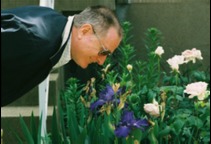 Donal Mahoney, a native of Chicago, lives in St. Louis, Missouri. He has worked as an editor for The Chicago Sun-Times, Loyola University Press and Washington University in St. Louis. His fiction and poetry have appeared in various publications, including The Wisconsin Review, The Kansas Quarterly, The South Carolina Review, The Christian Science Monitor, Commonweal, Guwahatian Magazine (India), The Galway Review (Ireland), Public Republic (Bulgaria), The Osprey Review (Wales), The Istanbul Literary Review (Turkey) and other magazines. Some of his work can be found at http://eyeonlifemag.com/the-poetry-locksmith/donal-mahoney-poet.html#sthash.OSYzpgmQ.dpbs (Photo: Carol Bales) Dancing Became Poetry It’s called the “Feis," a Gaelic word pronounced “fesh.” It’s a dance contest held annually in different cities in the United States. It’s the “Super Bowl” for young Irish step-dancers. When I competed in the Feis back in the Fifties, there were dancers there from the United States, Canada, Australia, Ireland and other countries. They took planes, trains and buses to get there to compete, usually in a stadium or some other large venue. The best Irish fiddlers provided the music. The judges were old men, retired dancers themselves, serious as clerics, sitting in trios at scoring tables in front of the platforms where the contestants competed. The audience sat in the stands or on folding chairs out on the field near the dance platforms. They chatted when there was no music but were silent during the competition. All you could hear then was the beat of the feet and the fiddlers playing their hearts out. The Feis began with the various solo dancing contests--reels, jigs, and hornpipes. Toward the end of the day, teams of dancers, male and female couples, competed in the three-hand reel, six-hand reel and the eight-hand jig. This was a serious competition. Dancers practiced all year, hoping to take home trophies and medals. In 1956 I was 18 and had been dancing competitively for at least 10 years. I started taking lessons early in grammar school to please my father who had emigrated to Chicago from Ireland. In his part of Ireland, step-dancing was at least a sport if not a religion. In the United States it was mostly girls who took Irish dancing. But my sister, try as she might, was unable to do it. I happened to be in the basement the afternoon my father, once a fine dancer himself, tried to teach her the first step of the reel. To show her up, as brothers are sometimes wont to do, I danced the first step perfectly, just by watching my father do it, and from that moment on, I had to take Irish dancing lessons. I can still hear him—after he saw me do the step my sister could not do--hollering up the basement stairs to my mother. “Molly, he’s got it!” I was in fourth grade then and danced competitively until the age of 21. Over the years I had come to love the music, the intricate footwork and the competition. And it didn’t hurt that the footwork helped in playing basketball. From my father’s point of view, the goal of Irish dancing was two-fold—perfection, in that the feet were not to miss a beat, and victory, in that not a contest was to be lost. Life being what it is, he was often disappointed. The interesting thing is that the music of Irish reels, jigs, hornpipes instantly appealed to me. I felt it in my whole body right from the start even if I didn’t like all the practice time involved, time I would rather have spent playing ball. The teacher, a man also from Ireland, not far from my father’s hometown, was a former boxer as was my father. Needless to say, they were of like mind. So we children had to train for a dancing contest as if for a championship fight or close to it. A lesson might take half an hour followed by two hours of practice. And there was no air-conditioning back then except in movie theaters. It just so happened that in my class we had four boys, all the same age, myself included. We grew up together, dancing every year in contests when not playing ball or doing other things boys normally do. In Irish dancing, boys were a rarity. No other dancing school had four boys so they could not field a “real” eight-hand jig, as it was called, with four boys and four girls. Most schools had eight girls in their eight-hand jig. But without boys, an all-girls team in 1956 probably lost points on optics alone if nothing else. We had four boy/girl couples and we had been dancing as a team for years by the time the contest at Fordham University rolled around in 1956. We figured we’d take the train to New York from Chicago and whip every team we competed against, no matter what state or country they were from. After all, we had beaten all the other teams from other Irish dancing schools in Chicago and some other mid-western cities. That year the Feis was held in the August heat in Fordham's stadium and our eight-hand jig beat everybody, as we thought, except for an “old team” (four couples in their 30s) from Ireland we knew nothing about. We had seen them the night before in an Irish pub where fiddlers played nonstop the best of Irish music and everyone was dancing and hollering the way the Irish do when properly lubricated. The four “old” men on the Irish eight-hand jig team had been drinking a bit, shall we say, and dancing with girls from other teams, including ours. And they were still dancing, finally with their own partners, long after our team had gone to our hotel rooms to get some sleep for the competition the next day. But after watching that Irish team dance for fun in the pub that night, I realized that when the right feet were involved, dancing could be poetry. Although the “old” Irish team had been drinking all night, they had sobered up by noon the next day when the competition began. We were dancing to win and they were still dancing for fun. We didn’t miss a beat and they didn’t either but they had literally an extra hop in their step, a leap if you will, that we had never seen. What’s more, they smiled when they danced and demonstrated an unaffected grace. In contrast, our team of boys and girls looked as serious as novices from a seminary and convent. We were kids trying hard and they were adult dancers having a wonderful time. They took the trophy and gold medals back to Ireland and we took our silver medals back to Chicago. We had been trounced and we knew it. And there was nothing we could have done, before or after the contest, to beat that Irish team. I can still see one of the men I had first seen in the pub the night before. He was as bald as the balls on the pool table and wore an Irish kilt. But that man could dance. He didn’t miss a beat, drunk or sober. His feet on the floor sounded like iambic pentameter with a little thunder added here and there for emphasis, especially at the end. Reels, jigs and hornpipes are still in my blood although it has been decades since I danced, for fun or competitively. When I hear the music now, I sometimes am moved almost to tears. It's the only music that ever really got to me. That was a long time ago but every once in a while I wish I were young enough to get up on that platform at Fordham University and dance again, compete again, and then I remember that bald Irishman in his kilt and I know that once again I’d be taking home a silver medal. Dancing for fun beats dancing to win. I learned that in 1956 watching a team from Ireland leap and not miss a beat as the fiddlers played their hearts out. The three judges knew the winners as soon as they saw that Irish team. They knew, in the heat of that August day, they had seen dancing suddenly become poetry. Author is a retired attorney having practiced for 35 years in Illinois who now lives in Texas and started writing stories about a year and a half ago. Book Review: The Nightingale Kristin Hannah’s latest best seller, The Nightingale, is the story about the lives of two French sisters during the Nazi occupation of France during World War II. The older sister decides to go along with the occupation, best she can that is, as she awaits the return of her soldier husband held in a German prisoner of war camp. The younger sister is unmarried, hates the Nazis, and joins the French resistance. The story is told by the older sister now an old woman living in Oregon and dying of cancer. She’s telling her story in 1995 of what she, her sister, their father and the people they knew, did to survive the occupation. A constant sub theme running throughout the story is the ongoing troubled relationship that the sisters have with their father. The title of the book, ‘The Nightingale’, seems to me anyway, somewhat not quite fitting because the actions of The Nightingale are only a part of the whole story and not the total driving force moving the story along. Perhaps a different title might have been more fitting, one that captures the whole panorama of all the events. Nevertheless the title does the novel no harm. The major characters, besides the sisters and their father are: a fellow resistance fighter with whom the younger sister falls in love, two German officers whom the older sister is forced to billet in her home, the dear Jewish friend of the older sister who meets her inevitable fate and whose child the older sister saves. Minor figures include rescued downed British pilots, Catholic nuns, fellow resistance fighters, and the neighbors of the sisters. Though the author has rounded up all the usual suspects for a World War II novel, she has pieced them together nicely in a new and entertaining way that keep the reader turning the pages. The author is a former lawyer. It seems that there’s a lot of lawyer authors today. More money and less stress must be the driving force behind that. Anyway, being a former one myself, lawyer that is, not author, I went to the library after reading this book looking for another book by this fellow lawyer with an historical setting. Unfortunately for me there were none. All her other books were, as I call them, and I mean no disrespect, chick flick books, what appeared to be contemporary women oriented stories. Those books sell but I don’t care for them. It’s simply a matter of taste. I don’t like beets but I like broccoli. George Bush doesn’t like broccoli. Different personal tastes. No disrespect intended. Check her books out if that’s what you’re into. They’re probably good reads like this one was. Anyway as the war ends so does the story with the old woman going to Paris in 1995, with her son, for a reunion with her fellow surviving compatriots. Here her son, for the first time, learns about what his mother and her family did during the war. But there’s one thing that his mother keeps to herself, though the reader obviously knows what it is. The ending is an honest to goodness real old fashioned tear jerker. Yeah I cried, but so what, ‘mens’ are human sometimes too you know. It’s the perfect and only way to end the story, not a word should be changed. Read the book, then cry at the end.  Frank Morelli plucked his roots from the cozy, northern soil and buried them in the sun-baked clays of the Carolinas. His work has appeared in Cobalt, Rind, Philadelphia Stories, Jersey Devil Press, Change Seven Magazine, and the East Coast Literary Review. An Open Letter To People Rocking Out in Cars Dear Fellow Motorists, We waste too much time our cars. We sit patiently at intersections, run errands to local markets, take unreliable scenic routes, ooze through traffic jams, and slither undetected past detours—all while killing ourselves with five dollar coffees and witnessing life, actual life, taking place on the other side of a few sheets of steel and a fancy window. And still, like a legion of ants marching toward a summer melon, we’re lured to our cars each day, every day, for reasons we can’t explain. The more we try to avoid it, the more we find ourselves strangled to death by our seatbelts; the more we watch our lives slip past as yellow hash marks on the highway. After all of that endurance, shouldn’t we be able to just sit there on our sweaty, vinyl seats and enjoy our debilitating depression? Shouldn’t everything around us match our hellish perspectives as we inch ever so slightly toward a brand new workday? At the very least, we shouldn’t be trailed at every mile by the fucking cheerful police—those people who find a way to transform their cars into mobile dance clubs each time they tap the presets. We shouldn’t have to watch other people be happy, should we? Not while we’re driving. I mean, who knows, you might be one of these happy fucking idiots. You might sit there and pretend you’re not, but it’s no secret. We definitely see you—because nobody has ever successfully hidden behind a pane of clear glass. Not one, single person. I’m talking to you, driver of the “High School Musical minivan,” led around by a bunch of squealing middle school girls. They’re all piled in your mommy mobile on the way to some nameless soccer tournament in East Rutherfordton Heights Manor Township or another little burg where people buy peaches from ramshackle stands and lay out on plaid blankets with picnic baskets. You own a car that fits thirty-seven clowns inside, but another soccer mom, three bouncing pre-teens, and seventy-nine pillows make the thing look like a tick on a bloodhound. There’s a stack of orange slices in the back window, bobbing and bouncing to the music as the girls sing into imaginary microphones. Candy bars, empty water bottles, hairbrushes, lollipops—anything within an arm’s reach. They screech out two or three notes at a time, then spend the next five miles giggling, falling on each other, and hoping nobody sees them—by trying as hard as possible to be seen by every being on the road, including bicyclists, road crew workers, and wildlife. It makes me fucking sick. I’m also talking to you, middle-aged guy in the “Boyz II Men Bug.” I hate you, man. You’re some poor slob driving your girlfriend’s Volkswagen Beetle, which I know because no dude has a bobble-head flower dancing on his dashboard and nylon eyelashes fitted over his headlights. Maybe you’re taking the car in for service, or maybe your ’78 Bronco with thirty-eight inch tires is stuck in a ditch somewhere. Whatever the case, you can’t help but hit a few buttons on the CD player, see what you girl’s been listening to. But then you start to dig it. Something like “Motown Philly” or maybe you slow it down with a little “End of the Road.” It doesn’t matter. All that matters is I see you sway you shoulders. I see you mouth a few words. And, yes, I see you pump the soul fist like you just squeezed juice from a fucking coconut. And I see those veins bulge in you forehead. And you look to the heavens. You’re searching. You’re looking. But what the hell are you looking for? You don’t know. Nobody does. Because you’re just out there on the highways and freaking byways rocking it out. And it pisses me the hell off. Just like you, guy in the “David Lee Roth Rambler.” You never surprise me, because I can smell you coming—like I inhaled the fumes from half an Iraqi oil field. As I marvel at the amount of black smoke pouring between rusted-out crevices in your side panel, you burst out of the blackness and into the right lane. Your curly locks dangle past your shoulders and the acrid scent of Ogilvie home perm overtakes the burning oil. A rash of drumbeats and synthesized guitar spills through open windows—probably something obvious and overplayed like “Hot for Teacher”—and you’re rocking it, my friend. You’re rocking it really freaking hard—like the last concert you attended spilled out in the parking lot and directly into your glove box. It’s on. And nothing, not even an entire caravan of ambulances with sirens blaring, will stop you from defying the symptoms of whiplash as you head-bang and hair-whip every last speck of dust off the dashboard. It makes me want to puke. Oh, and don’t think I forgot about you, Mr. “Stiff Upper-Lipped Lexus.” Everybody knows you, brother. Who can miss you in your two thousand dollar suit, with your seventy-five dollar haircut, manicured nails, and a vehicle that would sink two years of my salary? You barely move a muscle when you drive. Even use mostly knee to turn the steering wheel—that’s how much antifreeze you have running through the veins. But you rock out, too. Make no mistake, my friend. You’re a closet fucking rebel. Behind those Louis Vuitton shades you can’t get enough of whatever you’re listening to. And it’s weird shit. Not Bach or Beethoven or any of that normal rich-guy-routine stuff. No, you’re rocking out to the Ramones, or Candlebox, or freaking John Legend. It could be anything. You never know. And I have to be acutely observant to catch you in the act, Lexus Guy. You’ll never willingly show your true nature. You’re too coy. You fumble out a few lyrics—like the refrain in Pearl Jam’s “Alive”—and then you play it cool. Bob your head, tap the steering wheel. Stuff that normally wouldn’t piss me off. But then you belt out a few more fragments from the same refrain. It’s all you know and it makes me want to run you off the road. Murder isn’t always on my mind when I think of you, “Dashboard Drummer.” You’re an old classic, my man. You pull up at an intersection listening to some surfer-type shit with a bunch of annoying high-hat action—which is apparently why you’re stuck driving an old station wagon with wood paneling. The only clue to you having possibly surfed before is a jagged, metallic scratch on the roof of the car that may have been etched-in by the tail of a surfboard, but could have easily been a byproduct of moving a rusty bed frame from your frat house. You rock it pretty hard too, guy, but the drums are your game. As the beat reaches your core, you pound the dashboard, the steering wheel, the barely upholstered ceiling, your knee, your freaking two-year-old in the child seat—whatever suits your tastes at the moment with regard to drum kit assembly. And you never fret over collateral damage, even though the corner of the dash is cracked and bending (perfect snare drum) and the saddle-skin cover on the wheel is sundried. No. You rock on, literally to the beat of a different drummer—yourself. I only wish you wouldn’t do it in public. And, finally, don’t think I haven’t changed lanes to avoid you, “Middle-Aged Matron in a Mazda.” I knew you were on your way to work again because you had that shriveled look on your face. Of despair. At the thought of eight more hours trapped in the cube. In the middle of Suburbia. In some industrial park between a junction in the railroad. Yes, the railroad. Your hair’s still wet from the shower and the windows are rolled to the hilt—you want to marinate in your own depression. I could almost like you for that. But then you tap the ‘play’ button and there’s something upbeat. Maybe Blondie or Joan Jett. Maybe something from the ‘70s or Michael Jackson’s “Billie Jean.” And suddenly the windows are down. The hair’s drying in the breeze, and you’re belting it out like nobody’s watching. But I told you already: people are watching. I’m watching. And, quite frankly, it’s embarrassing, a little disheartening, and I don’t want to see it. Can’t you people take your little dose of gloom each morning like the rest of us? Can’t you keep your irritating happiness locked up somewhere so you could enjoy it on your own time? Get a fucking room. And what did you expect me to say? That maybe next time I’ll hop in the old chuck wagon and slip something special in the tape deck? Something beachy? Maybe something from Santo and Jonny? And that maybe I’ll crank the volume up to eleven? No, twelve? And maybe, just maybe, if I knock that cracked vinyl clean off the dash, it’ll be okay because I have plenty of duct tape in the garage? Yeah. Well, maybe not. Sincerely, Frank Morelli A PhD-level scientist, Sankar Chatterjee possesses the passion for traveling worldwide to immerse himself in new cultures and customs to discover the forgotten history of the society while attempting to find the common thread that connects the humanity as a whole for its continuity. His most recent essays appeared in The Missing Slate and Travelmag - The Independent Spirit. Photos courtesy: Shelley Chatterjee A Cultural Feast in Los Carnavales, Cádiz, Spain Though globalization, migration and assimilation have been creating new cultural festivities at different corners of this world, historic national festivities still maintain their allure and attraction to the citizens of a particular country. One such annual weeks’ long historic carnival in the city of Cádiz in southern Spain still takes place in late February. Popularly known as the “Los Carnavales,” the event claims to have been originated in mid-sixteenth century when this city, next to the Mediterranean Sea, served as an important port for the Spanish Empire. Widely known throughout Spain, the residents of the entire city along with visitors from other parts of the country take part in the festivities. During this period, on Saturdays, revelers wear colorful costumes, either regal or comical as well as paint their faces matching their costumes. The biggest attraction of the festival, however, is the various singing groups, labeled as the Comparsas, Chirigotas and Coros, respectively. While on a trip in that part of the country recently, my wife and I boarded a train at Jerez traveling to Cádiz on a Saturday morning. Immediately, we were warmly greeted by a group of friends, on the way to the carnival, dressed as the individual character of The Simpsons, the popular American TV show. The members of this group provided us with some information on the nature of the various singing groups. The members of a Comparsas group, wearing identical costumes, sing witty and satiric songs covering everyday life, political news as well as government policies. On the other hand, the members of a Chirigota group, also wearing identical costumes, deal the similar subject matters more in a humorous parody manner. A Coros group is usually made up of a large group of singers along with some musical instruments (guitar and lute, for example) on a flotilla. Their music encompasses the entire spectrum from serious to comical. Each member of the group wears elaborate and fancy, but different costumes. After disembarking in the Cádiz station, we initially walked towards the western end of the town to get a view of the Mediterranean Sea on a beautiful sunny day. After enjoying the beach for a while, we turned around to walk towards the city along with several costumed groups of adults and children, just arriving in the town. As we arrived to the town-square, we found a group of Comparsas, made up of similarly-dressed young teenagers entertaining the crowd with their version of a satire. They were well-rehearsed indicating the amount of effort went into the act. It has been said that the participants in any type of singing group prepare for the carnival throughout the year. On an opposite corner of the square, an adult group of Chirigotas, all dressed in similar costumes, was delivering a parody of a popular song with intermittent participation with laughter from the audience. Next, we arrived at the main street of the town where a parade of the Coros groups on their flotillas already began. One such group, everyone costumed differently, along with instrumentalists in the background gave a full performance of various songs (satires to parodies) in front of us. The carnival is popular not only for its musical performances, but also for its offering of eclectic foods; a street vendor was seen to clean and prepare a collection of sea urchins for gastronomic delight. For our lunch, we checked out a few local cuisines in a sidewalk café. The long day with display of fancy costumes along with laughter, singing, dancing and tasting of eclectic foods slowly inched towards the evening, reminding us for our return trip to Jerez. But what a day-long feast of Spanish culture it was to be!  Kim Bailey Deal writes Women’s Fiction, short stories, poetry, and creative non-fiction. She's been published in Firefly Magazine, A Journal of Luminous Writing. Kim has also been a guest blogger for Robert Lee Brewer’s blog at www.writersdigest.com. She authors a weekly column and is Social Media Manager for www.five2onemagazine.com. Kim also has a creative nonfiction piece published in Pilcrow & DaggerAugust/September Issue http://pilcrowdagger.com/issues/, and three poems, two short stories, and a creative non-fiction piece to published in September and October 2016. Kim is mom to three sons and one daughter, Nim to her grandchildren and step-daughter. She lives with her husband, John, near Chattanooga, TN. To connect with Kim, follow at www.kimbaileydeal.net. I Took It Back Thirty-eight years ago, when I was ten years old, my parents reconciled after a short separation and we moved to a duplex just off of Middle Valley Road in Hixson, Tennessee. It was early August in 1977. My dad had obtained a new job with TVA at the Sequoyah plant nearby. My mom was able to get a job at Dixie Yarns, not far from our new home. Dad worked first shift and mom started out on second shift. This was not unusual for my family. Our parents tried to manage their schedules so one of them could be home with my sister and me in the afternoons when we got home from school. However, mom was given the opportunity to work first shift for the first time since I was in the first grade. Back then, she worked as an assistant at a daycare across the street from where we lived. It was very convenient because my sister was bussed there from our school which was also very close to our house, after Kindergarten ended at noon. I would walk there after school let out later. Mom and Dad discussed it and decided that I was old enough to manage the two-hour window of time after school and before the two of them would get home from work. I would be responsible for my sister as well. This also allowed my dad the ability to work some overtime and make a little more money for our family. I started sixth grade that year at Hixson Elementary School. For the most part, I was a good student and behaved well in class. I was most generally a happy child, though I kept to myself a lot. My favorite thing to do was to ride my bicycle around the Valleybrook neighborhood which joined with our street, Shelby Circle, as my faithful dog, Slinky, ran alongside me. I also liked to go out into the woods behind our duplex and sit and think, write poetry and think of stories, draw, sing, hang out with my dog and just be alone. Finding my own secret places to go for solitude helped me with my low times, which I later learned was congenital depression. I was born with it. Life events would exacerbate the condition as well. In school, the thing I was most reprimanded for and which showed up on my report card each quarter, was that I daydreamed a lot. I can clearly remember my sixth grade teacher at Hixson calling out my name in class as he would find me staring out the window, or at my hands or the ceiling, or lost in a world of my own as I doodled and scribbled on my notebook. Mr. Doebler would call out, “Miss Bailey, oh, Miss Bailey. Would you please join us?” His class was in the early afternoon, just after lunch. Unfortunately, this was the time of day I was most likely to “space out,” a phrase my dad attributed to my cerebral wanderings. The kids teased me and snickered behind my back, and my parents chided me for it each time they read the comments on my report card. However, none of those external consequences were enough to change me. I was a creative soul who was also an introvert with attention deficit disorder, before anyone understood what those terms meant or that they were, respectively, a variation of personality and a cognitive condition. The Hester’s lived in the other side of the duplex where we lived. My dad had made friends with Earl Hester, or as most people called him, Sonny. His wife, Kay, would chat with my mom once in a while on the front porch or as they were coming and going. Though the Hester’s were about the same age as my parents, their children were much younger. Little Earl was seven, the eldest girl Tiki was around five, and LaRhonda was three. Sonny liked to get out in the yard and play with all the kids. He would do handstands, tell funny stories and make everyone laugh, and throw the football or play catch with the baseball. He would also talk to my dad while Dad practiced shooting his compound bow in the back yard along the tree line, or as he tended his vegetable garden, or when he grilled steaks and burgers out back. Yes, Sonny was a very likable person. We all liked him a lot. A few weeks after school began, around my eleventh birthday in September, Kay asked me if I would like to earn a little money and babysit her three children after school while Sonny slept, and before she got home from work. Her husband worked for UPS and he had to drive a truck late in the evenings and overnight a lot of the times. My job would be to go sit with the kids and help Little Earl with his homework, make them a snack, and keep them quiet while their dad slept in the next room. Since we lived just next to them in the duplex, I could occasionally go over and check on my sister while she was doing her homework or chores. My parents gave me permission to take the job, conditional upon keeping my grades up and doing my chores, as well as looking after my own sister. I felt I was ready for those responsibilities. In fact, having so many people to watch after and so much to do made me feel important. I was able to make a little money and was given permission to boss my sister and some other kids around without any backlash. What eleven-year-old kid wouldn’t like this arrangement, right? Unfortunately, things are not always as they seem. Life does not happen as we expect. My first job and first major responsibility outside my home was supposed to be a benign occurrence that marked my transition from child to adult. Instead, the events which took place turned into a nightmare and colored my self-esteem and self-image, my outlook on life, my relationships and my destiny for years to come. Bayless Earl “Sonny” Hester molested me during those months I babysat his children. He made me feel like it was my fault, and promised that if I told anyone he would hurt me or someone I loved. I didn’t tell anyone what happened until years later, and by then the damage had not only been done, but had manifested into a series of depressive episodes, poor relationships, and sexual dysfunction that I could not overcome on my own. Eventually I sought help and was able to talk about the experience. I began a very long journey towards healing. Thirty-five years after that despicable excuse for a human being molested me, I moved back home to the Chattanooga area. After living so close to the old duplex on Shelby Circle for the last eighteen months, I finally found the courage to make a final step towards my healing and recovery from his horrible actions. I had been able to connect with Sonny’s son, Little Earl, back in 2003 through a family member. I told Little Earl about what his dad did to me, and he admitted that his father had done the same thing to his sister. His parents divorced over twenty years ago. Before I said goodbye to Earl that day at my cousin’s house, I asked him where his dad was living. He told me he was in Fort Oglethorpe, behind where Kmart had been. I wanted to confront Sonny at that time, but I did not have the courage. Since John and I moved to Hixson in January, I have driven by the duplex on Shelby Circle on several occasions. I kept thinking about that little girl who used to live there, and how her life had been so drastically altered by what took place in the dark bedroom of the man who lived next door. A couple of months ago, I contacted Little Earl on Facebook and sent a message to him. I asked him how his mom and sisters were doing. He said they were doing well. His mom and youngest sister are living in Knoxville, and Tiki is driving a truck. I also asked him if his dad was still living in Fort Oglethorpe, GA in the same place and he confirmed that Sonny still lived there. Once I received that confirmation, I knew what I had to do next. With the unconditional love and support from my husband, I confronted Sonny on October 9, 2014 on the front porch of his home at 136 Howard Drive in Fort Oglethorpe, GA. John was off work and we had six days before he had to return. We had some things we needed to take care of such as pay bills and get groceries, cut trees in the back yard and do housework, etc. I had mentioned to John a few weeks back that I wanted to go to Fort Oglethorpe. He patiently listened and said, “Anytime, you just let me know.” On Thursday afternoon, after we had finished running some errands, I turned to John and said, “I’m ready to go to Fort Oglethorpe now.” He nodded and tugged at his goatee and then asked me, “Are you sure this is something you want to do?” “Yes, I’m sure.” I replied. “I need to do it.” So, we loaded up in the Ford Ranger and he pointed it to Highway 27 South. We left home around 4:30 pm, so I reconsidered going because I didn’t want my husband to have to deal with traffic. His response was, “It’s just traffic.” We went on. We arrived in Fort Oglethorpe a little after 5:00 pm and I said I needed to stop and use the restroom. John pulled over into an Arby’s parking lot. He asked me if I was hungry. I realized it was probably time for us to eat since we hadn’t eaten since breakfast. We ordered some food and ate as we watched all the traffic on Hwy 2 and Hwy 27 in what used to be a much quieter little town. As we ate, I remembered living there as a child. My grandparents lived not a mile from where John and I sat. I attended elementary school in the first through fourth grades just down the road from their house, and I was baptized in a little church across the street from their subdivision. After my family moved away from Hixson, when I was thirteen, we lived in Chickamauga, just a few miles from the Arby’s where John and I ate our dinner that day. I used to go roller skating and to the movies with my friends in Fort Oglethorpe. In a little restaurant across the intersection from the Arby's, there used to be a Pizza Hut. It was the place I went on my first real date with a boy. My mom used to shop at the grocery store where the BI-LO sits now, which used to be a Red Food store. The place had changed as much as I had over the years, but a lot of it remained the same, too. What I had come to realize, and what had brought me to that moment, was that a lot of who I was had also remained, despite the things I went through and the events that affected me. Although my life was forever changed by what Sonny Hester did to me, part of me had already begun to reclaim myself and who I was always meant to be. John and I left Arby’s and took a short drive to the street off of Hwy 27 towards Howard Drive. It only took about three minutes and we were sitting in the driveway. The home was modest but nicely kept. There were a lot of Georgia Bulldog’s signage and flags and other paraphernalia out in the yard and on the large front porch, which covered the entire front of the home. The driveway sloped down steeply, and at the end we could see a large RV parked under an awning, a sedan and a nice truck. We walked up the concrete walkway towards the porch. There was a baby gate on the front, between the two banisters, and beyond I could see the front door was open, and there was a glass storm door that let light in and allowed one to peer into the dark front room. I looked around on the front porch to see if there were any dogs, just in case, and then I undid the latch on the baby gate and opened it. In my hands I held two photos. One was of my dad. It was taken in 1977 or 1978. In the photo he looked much as he did back when we all lived in Hixson on Shelby Circle. The other photo was a picture of my dad’s blue and white Ford Bronco, sitting in front of that duplex. The duplex was a light green at that time. My husband was behind me, but I knew this was a moment I had to face on my own. I had to be the one to speak and say what I needed to say. John was there for support, but I was there to do the work. For a moment I worried that maybe this was the wrong house, or that Sonny wouldn’t be there. I also began to doubt my mission. Was it really necessary? What did it matter after all this time? I shrugged the doubt off and pushed the button for the doorbell. It was lit up with an orange glow. Several dogs began to bark at once. I backed down to the steps, next to John, and closed the gate. I heard someone say something to the dogs and then come to the door. When I saw him I knew it was him. I stepped back up to the porch and Sonny came out. I stood before him. My husband stood close by at the steps, just within reach. He was older, of course. I couldn’t help but notice that he was shorter than I remembered him to be. Of course, to my eleven-year-old self he seemed much bigger. Now, I stood at least an inch or two taller than him. He was just a frail old man. Sonny had a puzzled expression on his face. He seemed quite friendly, though. He asked what he could do for us. I asked him, “Are you Earl Hester? You go by Sonny, right?” He nodded, “Yeah, uh-huh.” He was smiling. I saw his blue eyes questioning me. “Do you remember Shelby Circle in Hixson, the duplex? My dad was Fred Bailey. I used to babysit your kids.” I said. My body was shaking, but my voice was strong. Sonny shook his head. “No, no. I sure don’t remember that.” I asked him, “Don’t you have a son named Earl, and daughters Tiki and LaRhonda? Your wife’s name was Kay.” “Yes.” He answered. Then his brow furrowed and he said, “What’s the problem? What's all this about?” I showed him the pictures of my dad and the old Bronco, sitting in front of that duplex. “See, this is my dad. See that Bronco? It’s in front of that duplex. Remember now?” I dug in. Sonny took the photos and said, “Oh, yeah, yeah! I remember that, now. Your dad used to love driving that truck around. What was his name again?” “Fred Bailey.” I repeated. “Oh yes, he died, didn’t he?” Sonny answered. At this point, I wanted to choke the guy. He knew exactly who I was. I could see it in his eyes, and by the expression on his face. I threw my head back and chuckled at that last remark. I was thinking to myself, “Yeah, he died and here you stand, you son-of-a-bitch.” Instead, I nodded and said, “Oh yeah, he’s been dead now, what, twenty-six years?” I said as I looked at my husband, who nodded while his kind blue eyes reassured me. “I’m sorry to hear about that. Well, you’re looking good. What are you up to these days? Everything going okay?” Sonny responded. I laughed and said, “Oh yeah, things are great…NOW. I’m doing really good. I have a good husband, life is wonderful.” “Good, good. You going to church anywhere?” Sonny asked. I couldn’t believe my ears. Church? This guy was something else. “No, we don’t go to church.” I said as I glanced again at my husband. Then I turned back to Sonny and, looking him dead in the eye, I said, “You molested me when I was eleven years old, back in Hixson, at that old duplex, while I babysat your kids. You were supposed to be sleeping before your wife got home because you drove that UPS truck at night and you molested me instead. I’m here to tell you that what you did was wrong.” He didn’t miss a beat. “Well, uh, I don’t remember anything like that, now. That wasn’t me. I’m sorry that happened to you, though.” I said, “I know you won’t admit it. I’m not here for that. I’m here to tell you that you’re a sorry excuse for a human being, and what you did was wrong. I was a child, not a woman. I was a CHILD. What you did messed me up for a long time. It was wrong.” Then he backpedaled. “Well, if I did anything like that I’m sorry. I was taking a lot of pills back then, not getting but two hours of sleep a night, you know, when I was driving that truck. I’m sorry, I really am sorry if that happened. I don’t remember it, but if it did I’m sorry. I go to church now, got saved and I got a good wife now. Me and Kay divorced about twenty-two years ago. I’m really sorry if something like that happened to you.” I really didn’t care if he admitted it or not. I didn’t care if he apologized. I had come to do what I needed to do. I knew what he did, and I knew it was wrong. I didn't need his stamp of approval or a confession. “Well, all I can say is, I hope that if you did that to anybody else, that you burn in hell.” I said coldly. He nodded and said, “Well, thank you, uh, well sorry about all that. It wasn’t me, but if it was, I’m sorry. I got saved and changed my life. That was a long time ago.” “There’s no excuse. There are no excuses for what you did. I will never forget those eyes. I know it was you.” I said as I smiled an icy smile at him and looked directly in his eyes. I turned to leave and as I was about to go down the steps I said, “Good luck with that whole Jesus thing.” My husband and I walked back to the truck. He opened my door for me, as he always does, and I got in. He backed out of that driveway and drove me home. As we were going up the highway he asked me, “Are you okay?” I smiled. “Yeah.” “Well, you gave him something to think about. You’re a brave woman.” My husband said. Thirty-seven years ago a grown man used his power to commit an atrocity on me when I was a child. I became powerless. I became unsure of everything after that happened. I wasn’t sure about myself or my abilities. I could not trust anyone. My self-worth was down around my ankles for a long time and because of that I attracted men into my life who were disrespectful and who hurt me and took advantage of me in different ways. I desperately wanted to be loved and accepted. I didn’t know how to go about getting what I wanted or how to turn away what I didn’t need, those wolves in sheep’s clothing who often appeared instead of the good guys. I confronted Sonny Hester and I got my power back. I had been on this road to healing for a long time, but I knew the final step I had to take was to go directly to him and tell him, to his face, what he did was wrong—I know it, you know it, my husband knows it, and the whole world knows it. Your dirty little secret is out. You can’t silence me anymore. You can’t make me feel badly about myself anymore. I am in charge of my destiny now. Yeah. I walked right up on that piece-of-shit’s front porch. Like a boss. And I took it back. |




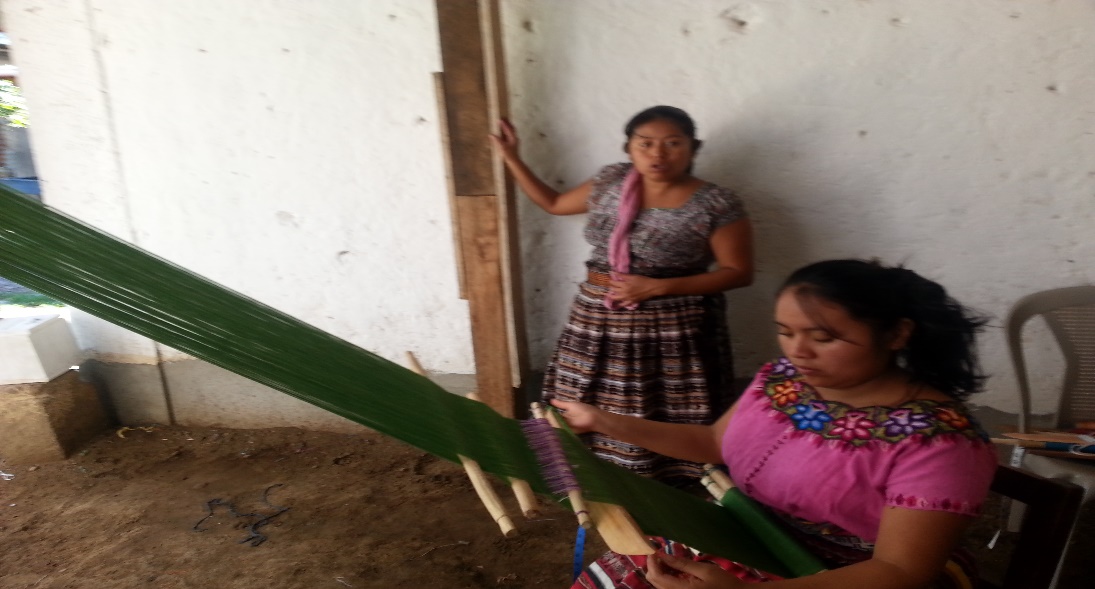

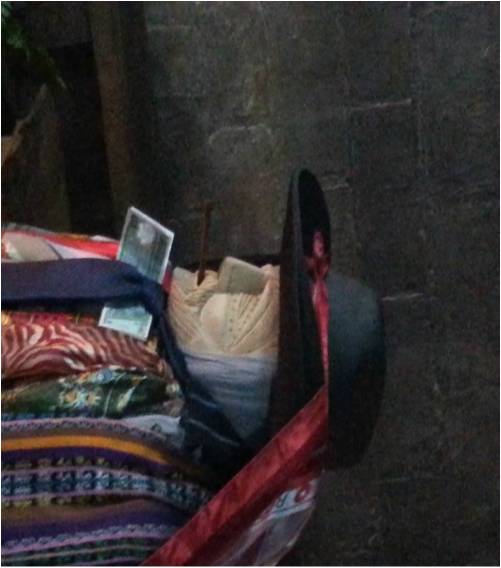
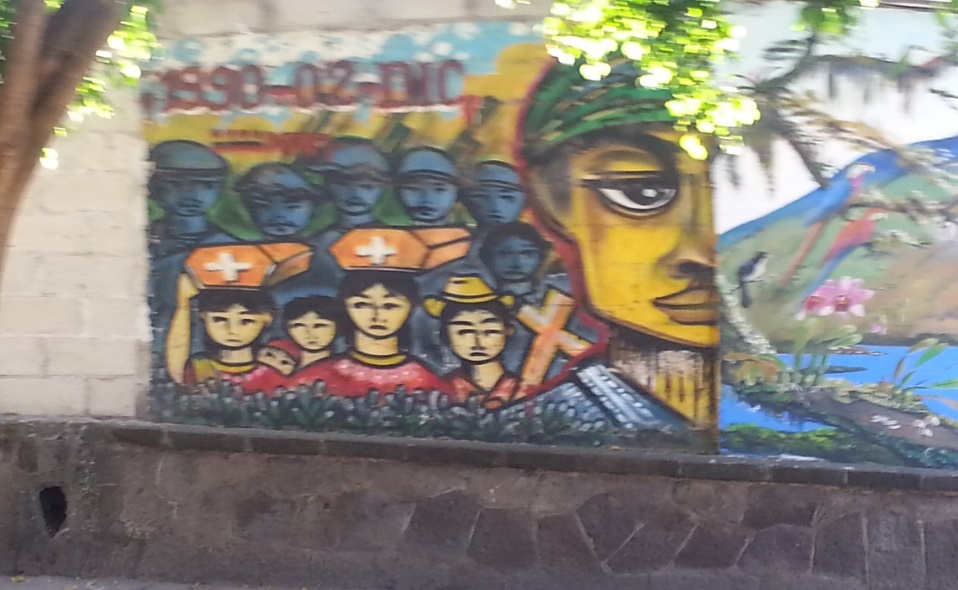

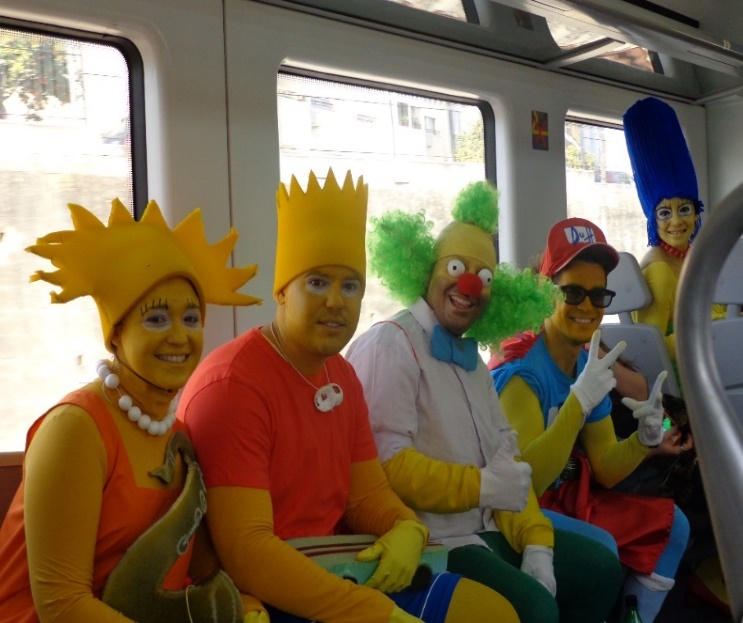

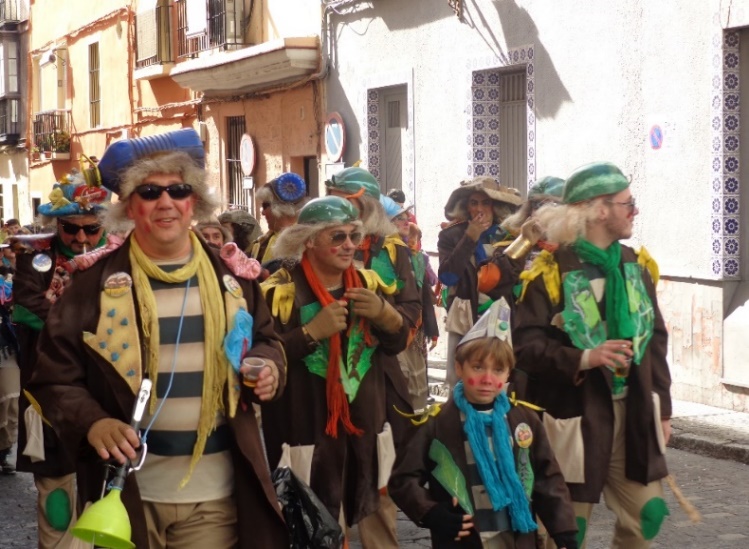
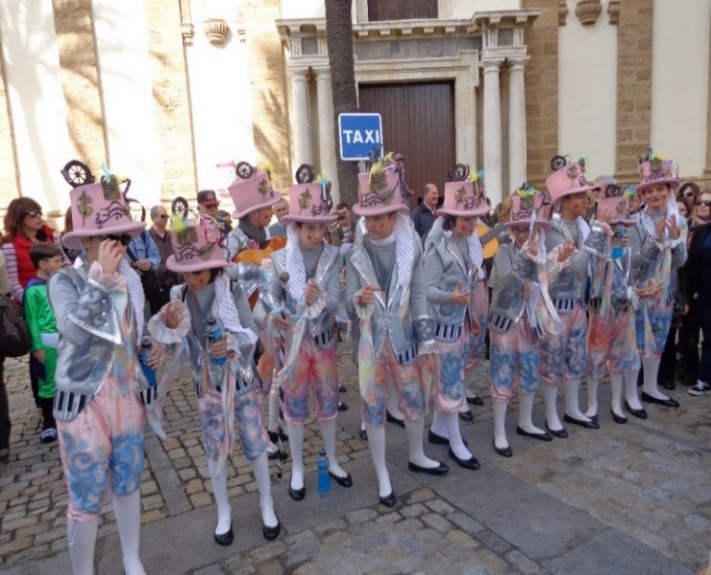
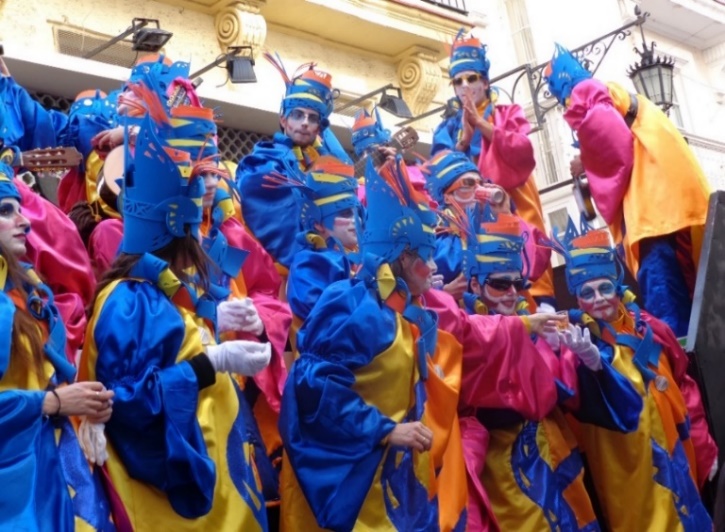
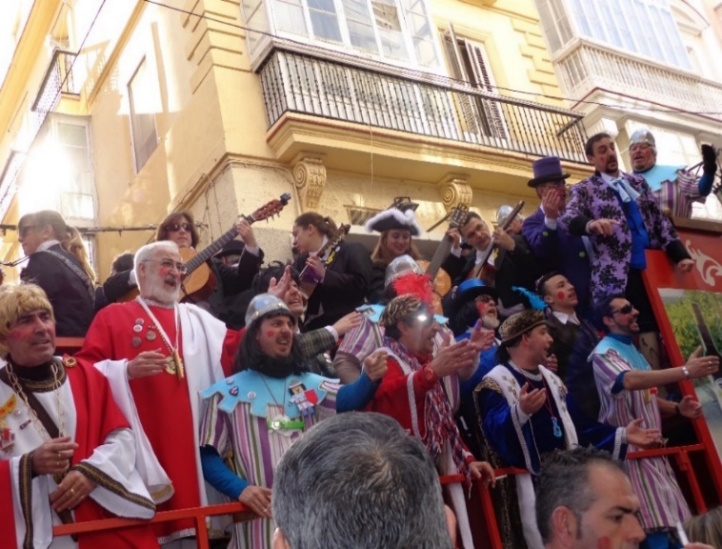
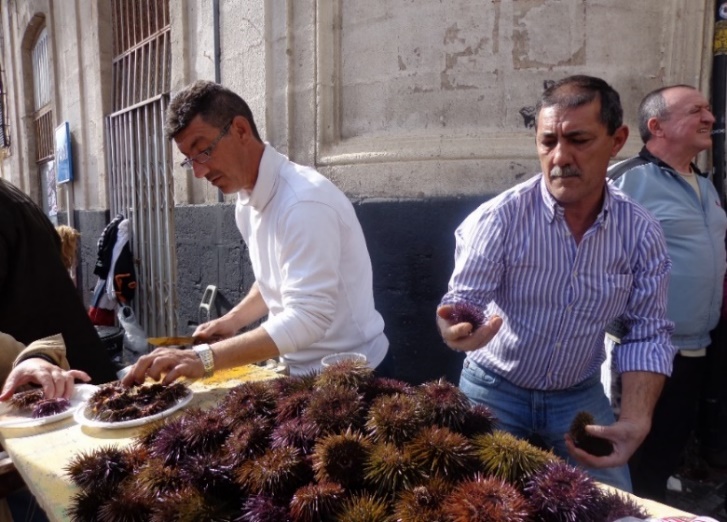
 RSS Feed
RSS Feed